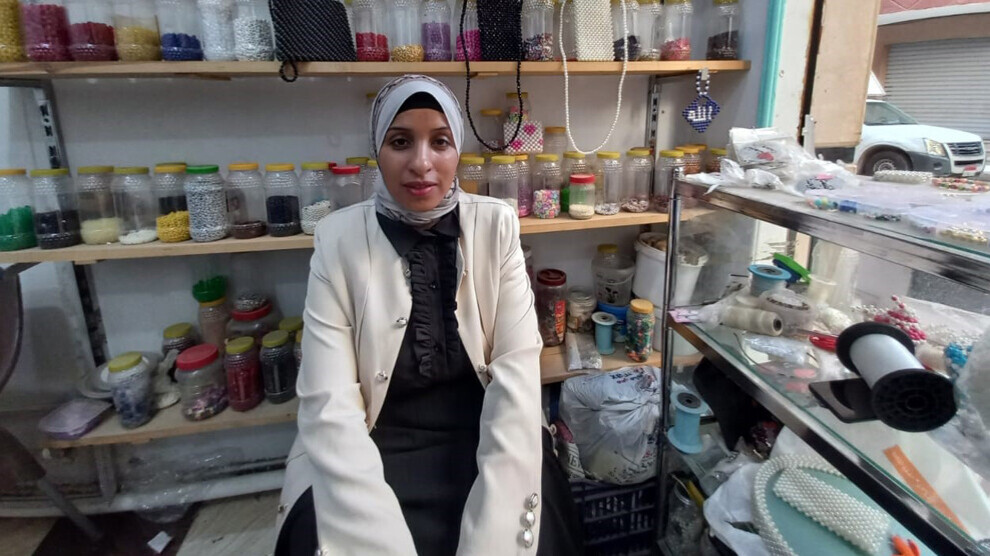Thanaa Jahin… The Story of a Woman Who Defied the Impossible
Thanaa Mohamed Jahin, known as Samar, began her journey with a small amount of money, challenging poverty and societal judgment to turn handmade accessories into a successful business.

Iman Samir Ali
Egypt - Despite her difficult circumstances and financial hardship, Thanaa Mohamed Jahin, known as Samar, refused to let her divorce be the beginning and end of her story. The 36-year-old woman from Bani Mor village in Assiut decided to become the heroine of her own success - a woman who started with almost nothing and built a thriving business.
Thanaa ended her marriage in 2015 due to family disputes. At that time, she was a mother of two — one was three years old, and the other was just a month and a half. She returned to her family home under very difficult conditions, being the eldest of three siblings who could not help her financially. One brother was serving in the army, and the youngest was still in elementary school.
She tried several jobs but couldn’t adapt to working with shop owners or customers. The way society looked at divorced women was enough to crush her spirit, even though all she wanted was to earn an honest living for her children.
Years of Struggle and Hard Work
Over time, she decided to rely entirely on herself. She began by giving private lessons to students in her village. To encourage them, she made small handmade accessories as gifts. But when the school holidays began, her income stopped, even as her need for money grew more urgent.
With only 20 Egyptian pounds (about 3 USD) in her pocket, she went to the market, bought some simple materials, and started making small handmade accessories to sell to neighbors, relatives, and locals. Soon, she met a friend working in the same field who helped her improve her skills and purchase materials.
Gradually, her business grew. She expanded her capital, contacted suppliers in Cairo to buy larger quantities at lower prices, and reached out to local organizations to display her work at exhibitions. She participated for the first time in a city exhibition.
Although she owned only a simple mobile phone, she distributed her number to customers and visitors, offering to create any kind of handmade products upon request.
After some time, she joined another large exhibition for artisans, achieving great success and recognition for two consecutive years - until the exhibition closed. Once again, she faced hardship, with nothing left but some low-cost materials.
Determined to survive, she took to the streets to sell her products on the fence of Ahl Assiut Walkway. Many were shocked - some mocked her, others offered money or tried to harass her, and many judged her harshly. But no one cared to understand her struggles - a mother fighting to cover her son’s medical expenses after years of neurological treatment, and to provide food for her children.
Her difficulties did not end there. During the COVID-19 pandemic, her father suffered a stroke that required costly treatment. Despite the nationwide curfew, she went out every day to sell her products until 5 p.m.
After years of persistence and endurance, Thanaa finally opened her own shop in Assiut, transforming from a street vendor into a business owner. Yet, social pressures continued. After remarrying, conflicts arose with her new husband, who demanded she close her shop and quit working. She refused.
“When he gave me the choice between my work and him, I chose my work,” Thanaa said, adding that she divorced again just three months later. “I will never allow anyone to erase my years of hard work and sacrifice.”
Participation in Exhibitions
She has taken part in international exhibitions, earning praise and support for her products. She now aims to participate in global expos in the Gulf and Europe.
Today, Thanaa’s products are sold in many Egyptian cities and shipped to customers across the country. She has also started organizing training workshops for girls to teach them handmade crafts.
Her dream is to establish the first handmade accessories factory in Upper Egypt, import raw materials from China, and expand her business to export her products to the Gulf region and Europe.
